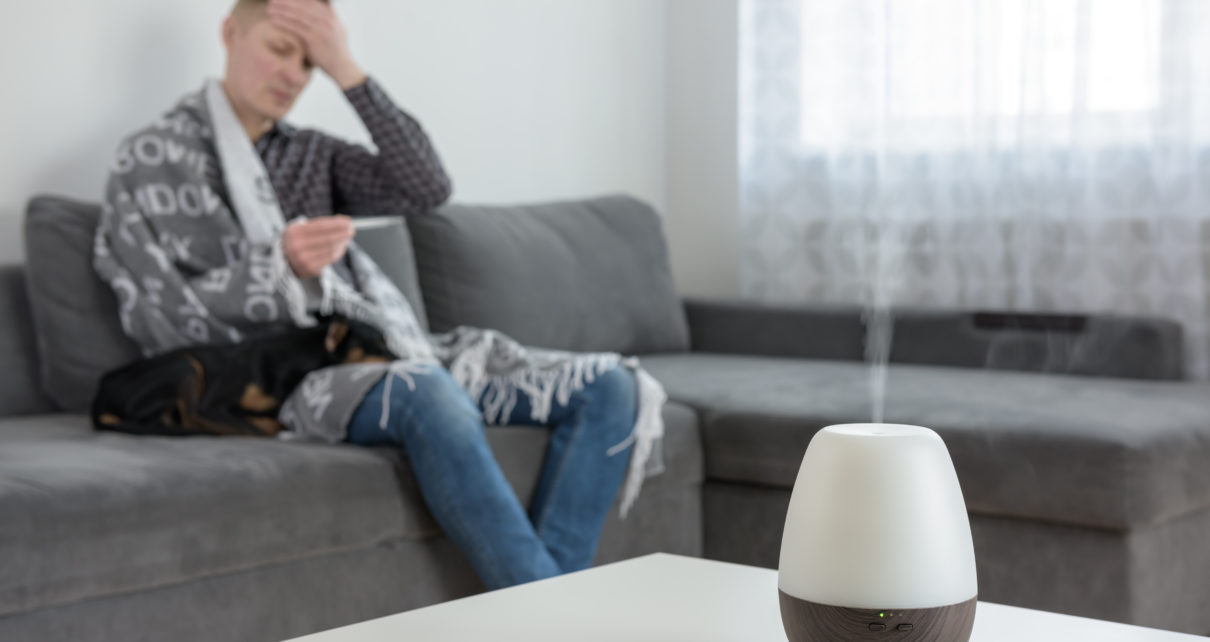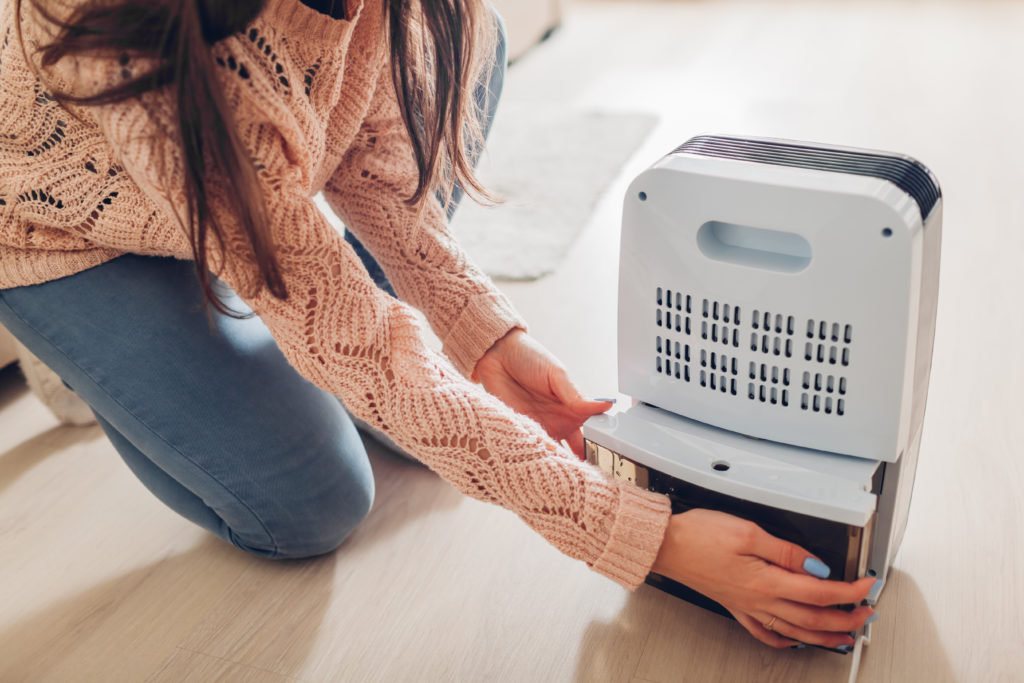
While using a humidifier can help reduce your risk for getting sick, help you recover more quickly and improve your family’s health in a couple ways, there is such a thing as too much of a good thing. Today we’re going to answer the question, “Can a humidifier make you sick?”
Dry indoor air can exacerbate asthma and allergies, but it could also increase your susceptibility to colds and flu. High humidity levels have been shown to kill off viruses. Humid air also keeps the throat and nasal passages hydrated and protects against sinus inflammation.
If you do get sick, higher humidity levels may make your coughs more productive, helping you break up the mucus that is causing your congestion.
What Does a Humidifier Do?
A humidifier, quite simply, is a device that increases the humidity level in the air. Humidity is a term that refers to the amount of moisture in the air.
When humidity levels are low, it can contribute to dry skin, itchy eyes, scratchy throat, and respiratory problems. Conversely, excessive humidity can foster mold and mildew growth and exacerbate symptoms of allergies and asthma.
Humidifiers work in much the same way by dispersing moisture into the air. They accomplish that goal, however, using different technologies. Some humidifiers boil water to create steam while others create vapor using vibration. Before buying a humidifier, do your research to learn about the different types of humidifier so you can make an educated decision.
How to Tell If You Need a Humidifier
The biggest sign, of course, is that the humidity levels in your home average below 30%. The Mayo Clinic recommends relative humidity levels indoors between 30% and 50%. You can measure indoor humidity using a hygrometer. If you’re not sure whether the humidity is low, static electricity is a good sign.
Another sign you need a humidifier is that your throat frequently feels scratchy and your eyes are dry. If your allergy symptoms get worse indoors instead of better or you find that you’re getting sick more often than usual, it could be an issue with low humidity.
Even if the humidity level in your home is adequate, you might benefit from slightly higher humidity levels when you are sick to help clear mucus and hydrate the throat and nasal passages.
Can a Humidifier Make You Sick?
If you’re going to purchase a small home appliance, you need to think about more than what features you want. First and foremost, you need to make sure it’s safe to use.
There’s nothing inherently dangerous about a humidifier, but there are still some risks involved depending on the situation and how you use it. The biggest risk associated with humidifiers is the possibility of increasing the humidity level in your home too much.
Excess moisture can accumulate on walls, floors, and furniture which may create conditions for mold to grow and spread. Mold and mildew can exacerbate asthma or allergies and contribute to new respiratory problems as well. Another potential risk has to do with the water you use in the humidifier.
Humidifiers work by turning water in a reservoir tank into vapor. If the reservoir tank or the inside of the humidifier becomes dirty, it could end up releasing bacteria into the air that could make you sick. Keeping the humidifier clean is absolutely essential and each model comes with manufacturer instructions for proper cleaning.
As a final precaution, avoid using certain types of humidifiers around babies and children. Evaporative humidifiers and other models that use heat come with a risk for burns.

Tips for Using a Humidifier Safely
Humidifier safety starts with choosing the right model. If you’re using it in a nursery or child’s room, avoid models that use heat. Ultrasonic or cool mist humidifiers are generally the safest options. You may also want to consider using distilled water to reduce mineral deposits that might compromise the function of the unit.
Here are some additional tips for using a humidifier safely:
- Always unplug your humidifier before you clean it.
- Once a day, empty and rinse the humidifier base and tank.
- After rinsing, let the tank air dry completely before refilling.
- Once a week, clean the humidifier and tank with a 10% bleach solution.
- Rinse the tank several times to remove all cleaning products.
- Check the humidifier’s filter cartridges regularly and replace as needed.
It’s particularly important to go through these steps before storing your humidifier. Some people only need to use a humidifier during the winter when outdoor humidity levels drop. If you’re going to store your humidifier during the summer and fall, clean it thoroughly and let all the parts air dry before putting it away.
In addition to eradicating bacteria and other pathogens, cleaning the humidifier ensures that it’s ready to use the next time you need it.
Can a Humidifier Make You Sick? Bottom Line
Humidifiers aren’t inherently dangerous but, like any home appliance, they need to be used properly. Improper use of a humidifier may cause the humidity levels in your home to rise too high which could contribute to mold and mildew growth – it might even make you sick.
Before purchasing a humidifier, check the humidity level in your home to see whether it’s truly necessary. If it is, choose a humidifier appropriately sized for the space and make sure to use it according to the manufacturer’s instructions.
